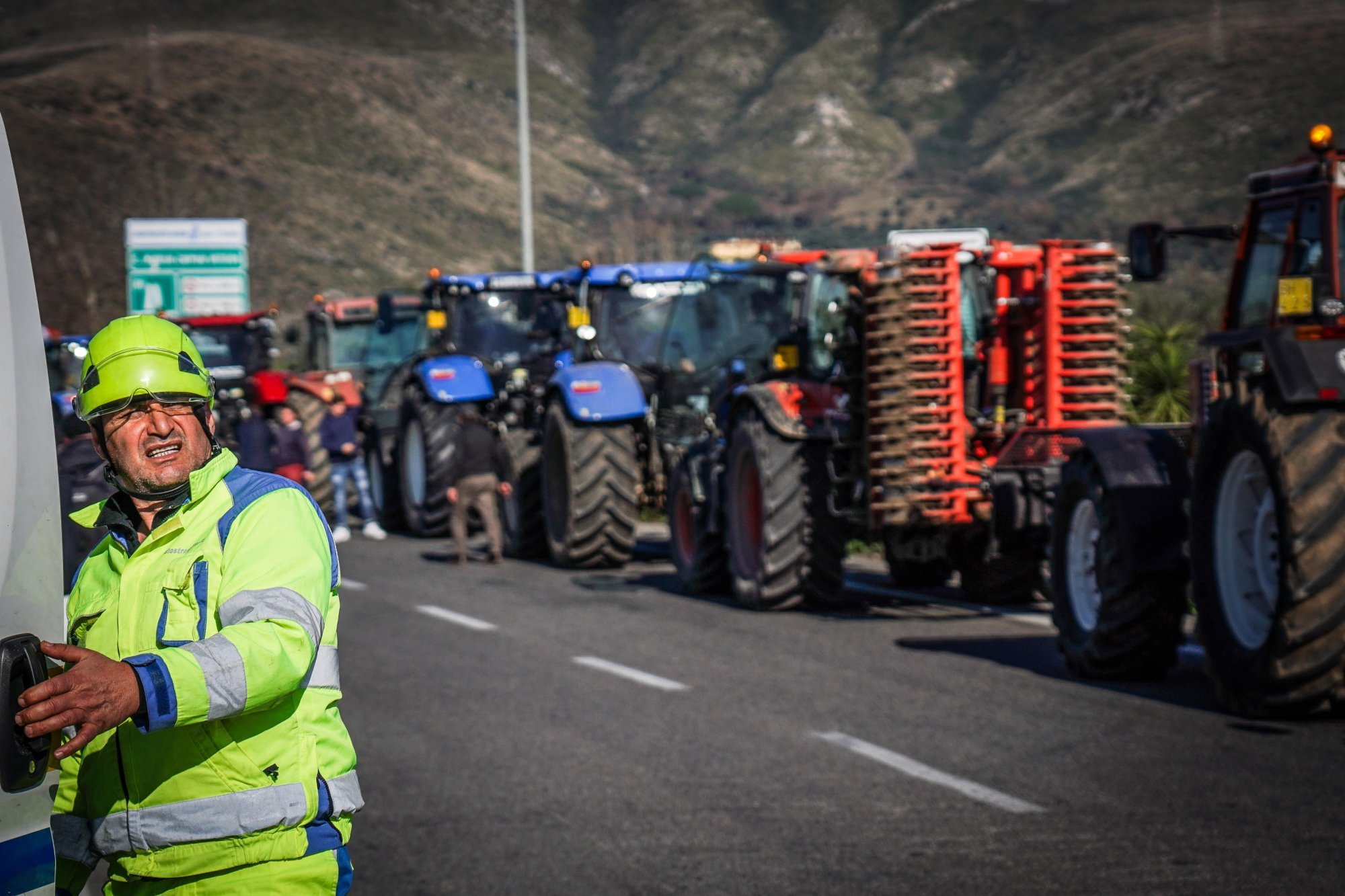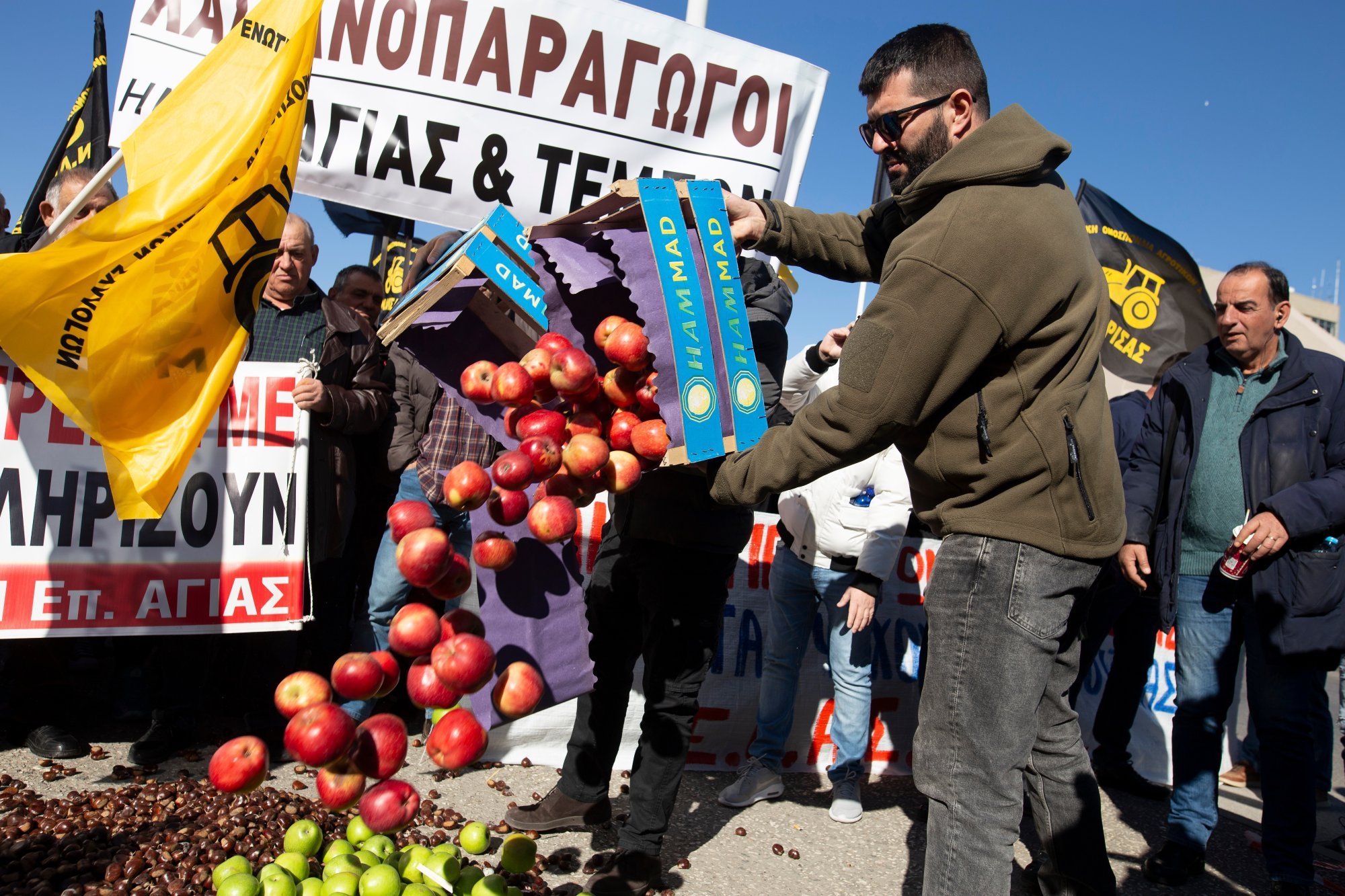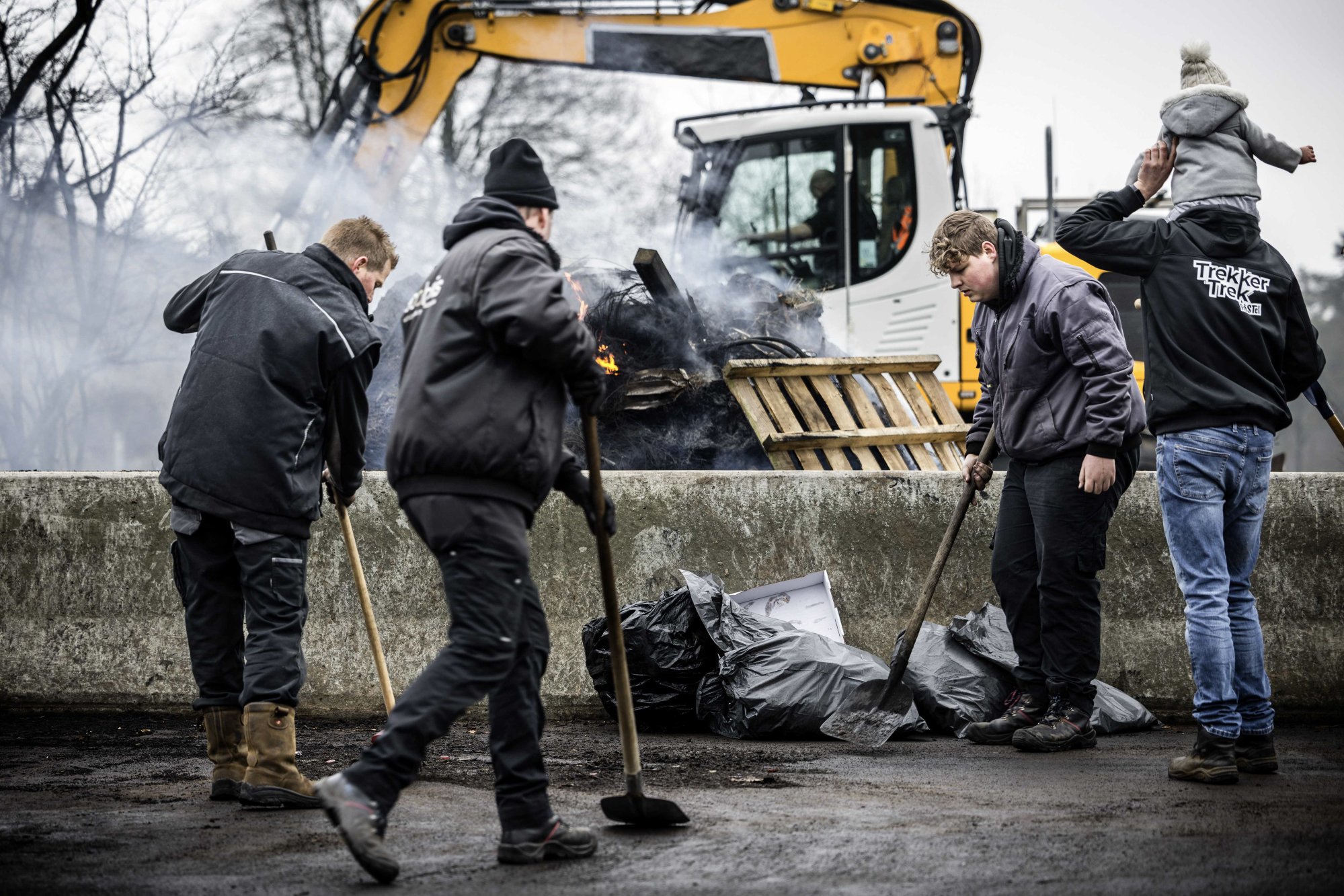In Italy on Saturday, around 150 tractors massed in Orte, about an hour north of Rome. Protesters there called for better pay and conditions and announced their imminent arrival in the Italian capital.

“Italian agriculture has woken up,” protester Felice Antonio Monfeli said. “It’s historic and the people here are proving it. For the first time in their history, farmers are united under the same flag, that of Italy.”
The demonstrators have for days been calling for talks with Prime Minister Giorgia Meloni’s government, without having had a response so far.
“The situation is critical, we cannot be slaves in our own companies,” said another protester, Domenico Chiergi.
In Greece, around 2,000 farmers protested in the country’s second-largest city of Thessaloniki on Saturday calling for increases in aid. Their action came a day after Prime Minister Kyriakos Mitsotakis announced further support measures.

Some farmers from the mountain villages of Thessaly threw chestnuts and apples that had spoiled because of the natural disasters that hit the region.
“We have no food, we cannot put our lives in discount,” said Kostas Tzelas, president of the Rural Associations of Karditsa. “We want to stay on our land and not become migrants.”
Mitsotakis has already extended the refund of a special consumption tax on oil and a discount on rural electricity from May to September. It is among a package of measures whose cost Mitsotakis put at more than €1 billion- (US$1.1 billion).
But Tzelas dismissed these measures as “peanuts”.
France’s protesting farmers encircle Paris with tractors, vowing ‘siege’
France’s protesting farmers encircle Paris with tractors, vowing ‘siege’
The president of a union of agricultural associations, Rizos Maroudas, told reporters a meeting was scheduled next week “to decide the escalation of blockades”.
In Germany, hundreds of farmers on tractors disrupted access to Frankfurt airport, the country’s busiest, in opposition to a reform of diesel taxation, police said. A Hesse farmers’ association estimated vehicle numbers at around 1,000, while police said 400 tractors took part before the protest ended in the early afternoon.
A protest on the Dutch-Belgian border that had shut down a main motorway was wound down on Saturday evening, the Belga news agency reported.
Farmer discontent has also affected non-EU Switzerland, where around 30 tractors paraded in Geneva on Saturday in the country’s first such protest since the movement started elsewhere in Europe.

“As a young person, it scares us a lot not knowing if there is a future in our profession,” said Antonin Ramu, a 19-year-old apprentice winegrower.
He welcomed the transition to a more environmentally friendly agriculture but asked for more help in the face of competition from countries without the same standards.
In Spain, the three main farmers’ unions have announced more protests in the coming weeks, with a major demonstration planned for Barcelona on February 13.
In France, security forces cleared the few remaining blockades of motorways a day after the main agricultural union called for them to be lifted following government concessions.
German farmers drive tractors into Berlin to protest fuel subsidy cut
German farmers drive tractors into Berlin to protest fuel subsidy cut
Their mobilisation had forced new Prime Minister Gabriel Attal’s government to pause a plan to reduce pesticide and insecticide use and offer an aid package of €400 million.
Romanian farmers and hauliers also announced the end of their roadblock protest on Saturday following an agreement with the government.
The EU is scrambling to address concerns ahead of European Parliament elections this year.
The European Commission on Thursday promised measures to defend the “legitimate interests” of EU farmers, notably the much criticised administrative burdens of the bloc’s Common Agricultural Policy.

